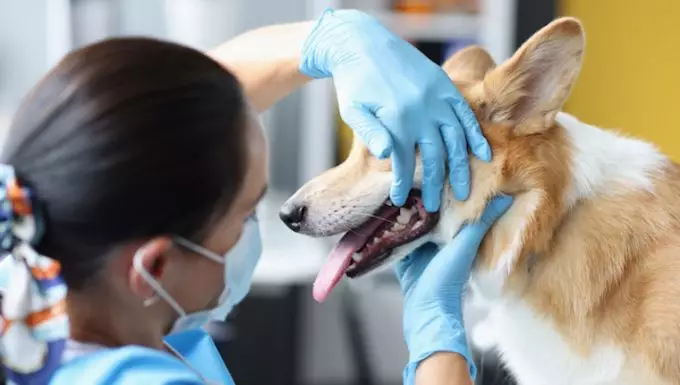Gingiva squamous cell carcinoma is a serious and prevalent form of oral cancer in dogs. It stands as the most common mouth cancer diagnosed in our canine companions and requires prompt attention to prevent further complications or metastasis. This article delves into the nuances of this condition: its symptoms, potential causes, diagnosis processes, and treatment options.
Owners must be vigilant for signs that may indicate the presence of gingiva squamous cell carcinoma. Early detection can significantly affect treatment outcomes. Some of the hallmark symptoms include excessive drooling and noticeable weight loss, which may seem innocuous but could signal underlying issues. Additionally, persistent bad breath or halitosis is often reported, which contrasts with a dog’s usual odor.
Other common symptoms consist of difficulty when eating, possibly due to pain or discomfort in the mouth. This, coupled with visible signs like blood around the mouth, loose teeth, or a swollen jaw, should prompt immediate veterinary consultation. Furthermore, if your dog develops growths in the oral cavity or exhibits unusual coughing, these could also be indicative of oral cancer. As a responsible pet owner, recognizing these signs will enable timely intervention and care.
The precise etiology of gingiva squamous cell carcinoma remains largely elusive, often categorized as idiopathic — meaning the cause is unknown. However, certain factors have been theorized to increase the risk of developing this condition. Environmental exposures, such as contact with carcinogenic chemicals, have been identified as potential risk factors. Additionally, prior radiation treatments or specific infections might play a role in the development of oral tumors.
Moreover, certain dog breeds appear to have a predisposition for this cancer, including Beagles, Bull Terriers, Dalmatians, and Basset Hounds. Awareness of breed-specific vulnerabilities is essential for owners to remain proactive in their pet’s healthcare.
Upon suspecting gingiva squamous cell carcinoma in a dog, it is crucial to consult with a veterinarian. The diagnostic process begins with a thorough examination where the vet will review your dog’s symptoms and medical history. Particular attention will be directed towards any breed-related issues that could influence diagnosis and treatment.
A complete physical examination will be conducted, focusing primarily on the mouth where abnormalities may be present. Diagnostic testing will likely include blood and urine analyses, but the key component in confirming the diagnosis is a biopsy of any suspect growths. This definitive step is critical, as it not only confirms the diagnosis but can also inform the subsequent treatment approach.
The treatment strategy for gingiva squamous cell carcinoma is contingent on the cancer’s stage and severity. For early-stage tumors, procedures like cryosurgery — where extreme cold is employed to freeze off the tumors — may prove effective. However, larger tumors often necessitate more extensive surgical intervention, potentially requiring the removal of tumor-affected tissue or even parts of the jaw.
In some instances, oncologists may recommend a comprehensive approach that combines radiation therapy and chemotherapy. Additional methods, such as photodynamic therapy, which utilizes lasers to target and destroy cancer cells, may also be explored.
Adapting home care during recovery is just as important as the clinical aspects of treatment. Creating a peaceful environment will help your dog cope better after the surgery, and a modified diet consisting of softer foods may be necessary. Collaborating with a veterinarian to establish a nutritional plan will ensure your dog continues to receive the balanced diet needed for recovery.
Gingiva squamous cell carcinoma in dogs is a serious health concern but one that can often be addressed effectively with early detection and treatment. Awareness of the symptoms, understanding potential causes, and recognizing the importance of prompt veterinary consultation can significantly improve a dog’s prognosis. If you suspect that your furry friend may be experiencing issues related to oral health, seek veterinary advice without delay. Your vigilance could make all the difference in ensuring a healthier, happier life for your beloved pet.

